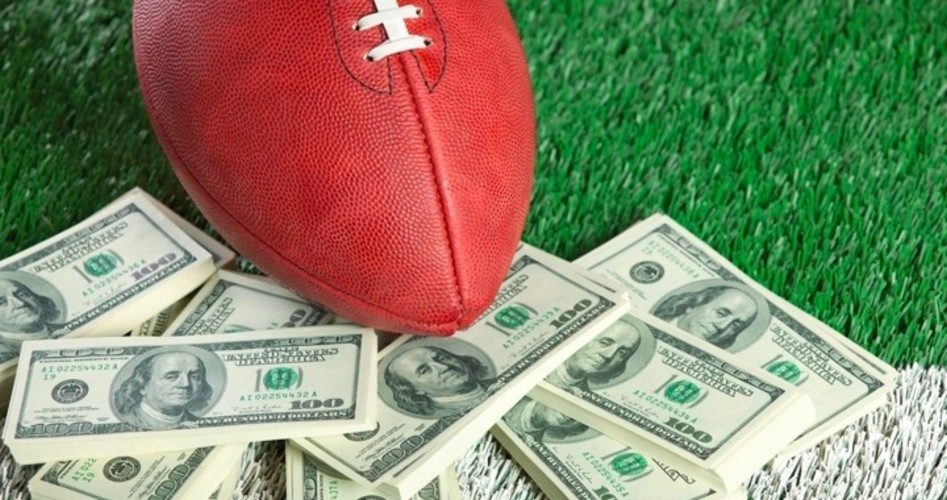
The Seattle Seahawks trounced the Denver Broncos in pro football’s ultimate game, but the National Football League extended its winning streak through Super Bowl XLVIII with an equally convincing array of tax breaks from the state of New Jersey, the Star-Ledger reported. As part of its winning bid to land the big game at East Rutherford’s MetLife Stadium, the state agreed to waive the usual taxes on tickets sales and parking revenue amounting to $8 million, according to state officials. The state will also pay the tab for all of the security costs related to the big game, including the presence of 700 state troopers and hundreds of overtime hours, the Newark-based daily reported. Ticket prices for Sunday’s game ranged from $500 to $2,500 for club seats. The NFL received half of the stadium’s 218 luxury box tickets, which sold for $400,000 each. The league also collected the tax-free revenue for stadium parking for the big game at $150 per space.
The requirements are the same for any locale seeking to bring the nation’s most celebrated sports spectacle to its home turf. According to the bidding requirements cited by the Star-Ledger, the NFL requires that all revenue from the Super Bowl and related events “be exempt from sales, amusement, or entertainment taxes, and other surcharge obligations.” The host community and state are expected to benefit from the influx of fans from around the country who come to the game, eat at local restaurants, stay at hotels, and otherwise generate a windfall of taxable economic activity away from the game itself. That may be less of an advantage to New Jersey than it has been at other Super Bowl sites, however, since MetLife Stadium is but a 13-mile drive from the city of New York, where many of the fans were staying. The dollar impact on the New Jersey economy remains unknown.
The benefit to the league from the tax-exempt status of the ticket sales may be less than it appears. Given the demand and the kind of prices people are willing to pay for Super Bowl tickets and parking, the NFL could simply pass the sales tax on to the customers, as most businesses do. But tax breaks for the league go well beyond Super Bowl revenues. The NFL is under the Internal Revenue Service category of tax-exempt “nonprofit ‘commercially oriented’ organizations,” and thus pays no federal taxes on the dues it receives from the league’s 32 teams, its share of revenues it from licensing fees, merchandise sales, broadcasting rights, and other sources of income for its $9 billion-a-year operations.
The Internal Revenue Service section 501(c)(6) grants the tax-exempt status for those “business leagues, chambers of commerce, real estate boards, boards of trade, or professional football leagues” and other entities that represent a trade or industry. The words “professional football leagues” were added at the time of the NFL merger with the American Football League in 1966 and have remained there because of the NFL’s considerable lobbying power, according to Rootstrikers, a non-profit group fighting what it calls “the corrupting influence of money in politics.”
“The NFL has spent $3.6 million lobbying in recent years, and contributed more than $1.6 million to members of Congress,” Rootstrikers says on its website. “It leads all professional sports leagues in lobbying expenditures.” Nor does the nonprofit skimp on executive salaries, having paid Commissioner Roger Goodell a reported $29.4 million in 2011, the last year for which the numbers are available. Sen. Tom Coburn wants to end the tax advantage professional sports leagues enjoy over other taxpayers. The Oklahoma Republican introduced a bill last fall called the Properly Reducing Overexemptions for Sports Act (PRO Sports Act), which would end the tax break for the National Hockey League, golf’s PGA Tour, and the Ladies Professional Golf Association, in addition to the NFL. Major League Baseball gave up its tax-exempt status in 2008.
In his 2012 Wastebook, Coburn claimed the tax breaks for the sports leagues total $91 million a year, adding that “hardworking taxpayers should not be forced to provide funding to offset tax giveaways to lucrative major professional sports teams and leagues.” The sports network ESPN challenged the figure, noting the congressional Joint Committee on Taxation estimated ending the nonprofit status of the NFL and NHL would bring in an estimated $109 million over 10 years.
Since the federal government is still nearly a trillion dollars a year short of balancing its annual budget, the revenue lost, whatever the number, is added to the national debt, owed by the taxpayers of this and future generations: “Tax exemptions like this one are corporate welfare and government cronyism,” Steve Stanek, a research fellow at the Heartland Institute told Newsmax.com. “Good tax policy would end them.”
Taxpayers are also put on the hook quite often for debts incurred by local, state, and county governments in helping sports franchises finance new homes for their teams. Minnesota and the city of Minneapolis, Newsmax reported, will put up $498 million in public money toward a $975-million stadium project for the Minnesota Vikings football team. The Atlanta Journal-Constitution last fall reported a $200 million increase — to $1.2 billion — in the projected cost of a new stadium, featuring a retractable roof and a 62,000-square-foot video screen, for the NFL’s Atlanta Falcons. The city is committing $200 million bonds for the project, backed by revenue from its hotel-motel tax. The league has agreed to put up $200 million. Some of the remaining $800 million is expected to come from the team’s seat license program in which fans will be required to pay an additional fee to purchase season tickets. The new sports palace will replace the team’s current home, the Georgia Dome, built for $214 million in 1992. The Georgia Dome is scheduled for demolition upon completion of the new stadium in 2017.
Atlanta Mayor Kasim Reed was in favor of the deal for the football stadium, but opposed a request for public financing for a new stadium from baseball’s Atlanta Braves, who will instead be moving to neighboring Cobb County in 2017. The county will finance $450 million of the projected $672 million for a new stadium for the team.
Sports franchises have “extorted billions of dollars from taxpayers around the country,” Stanek said, “with threats to take their ball and go somewhere else” if public officials won’t put up taxpayers’ money for new sports facilities that bring questionable economic benefits to the local venue.
“Almost every independent economic study shows communities have little or no economic gain from them,” Stanek said, “because the money people spend at sporting events would have been spent in others ways, on things like going to the movies, restaurant dinners and other entertainment.”


